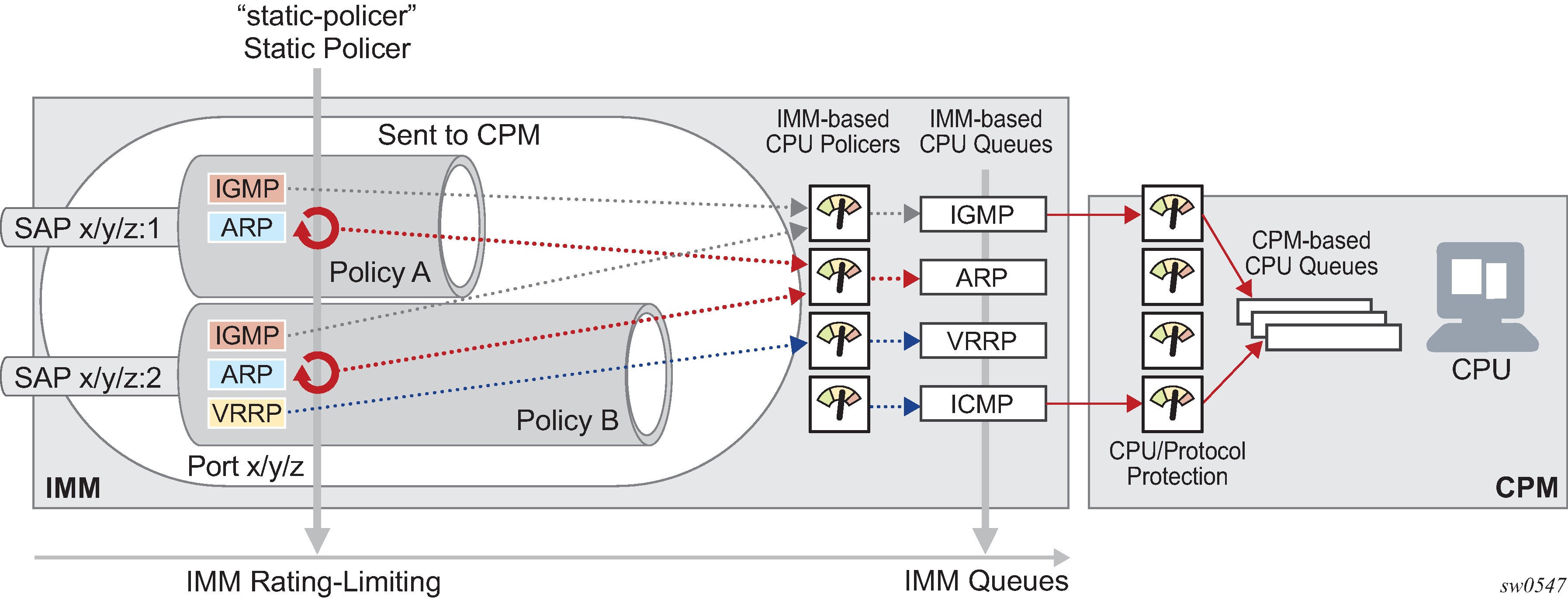DCP provides a powerful per-protocol-per-object rate-limiting function for control protocol traffic that is extracted from the datapath and sent to the CPM. See DCP applicability for a list of applicable objects. The DCP function is implemented on the router for granular control.
DCP provides the enforcement policers to configure policies that are applied to objects (for example, SAPs). An enforcement policer is an instance of a policer that is policing a flow of packets composed of a single protocol arriving on a single object (for example, SAP). Enforcement policers perform a configurable action, such as a discard, on packets that exceed the configured rate parameters. Static policers are the one type of enforcement policer supported on the 7210 SAS-R6 and 7210 SAS-R12, which are always instantiated if configured.
The following figure shows per-SAP per-protocol static rate limiting with DCP.

CPU policers and CPU queues on CPM and IMM are shown only for some protocols. on the 7210 SAS, all control traffic to the CPU is rate-limited using a policer per protocol or group of protocols. The CPU queues are further shaped to the system-defined rate. There are different policers and queues used for access ports and network ports to ensure that customer traffic does not affect critical network traffic. The rates for these CPU policers and queues are not configurable by the user.